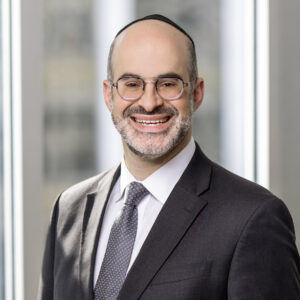Insights < BACK TO ALL INSIGHTS
Court Finds State Ban on Sex Offenders’ Use of Social Media Tramples Speech Rights
Court Finds State Ban on Sex Offenders’ Use of Social Media Tramples Speech Rights
By: Steven Eichorn
In a January 23, 2013, ruling, the U.S. Court of Appeals for the 7th Circuit held that an Indiana law that prohibited most registered sex offenders from using social media websites was unconstitutional because it was “not narrowly tailored to protect the state’s interest.” The decision was restricted to the Indiana statute on sex offenders and did not extend its reasoning to another, related issue – whether courts can permissibly, as a condition of probation or supervised release, restrict white-collar criminals from using the Internet.
The fatal flaw of the Indiana law, the appeals court held, was that it was overbroad because it targeted substantial protected speech, rather than retaining a narrow focus on the specific evil of improper communication to minors.
The 7th Circuit noted that the Indiana statute affected First Amendment rights because it controlled expression via social media and limited the ability to receive information and ideas.
In recent cases of various sorts, including e-commerce cases, federal courts have proved all too willing to imposed Internet bans that trample on various constitutional rights. We focused on this problem in a National Law Journal article a couple of years ago that argued that courts go too far when they impose a broad ban on the use of the Internet against a defendant who had committed online fraud.
In the sex-offender case, Doe v. Marion County Prosecutor, the 7th Circuit acknowledged the strong state interest in protecting minors from harmful online communication, but explained that the ban must be narrowly tailored to target only the appropriate evil. All parties agreed that there is nothing inherently dangerous about using social media – except when a sex offender communicates with minors, which is only a “minuscule subset of the universe of social network activity.”
The same principle ought to be applied to restrictions on Internet use placed upon those who have been found guilty of fraud in e-commerce. Not all Internet usage should be treated as suspect.
Towards the end of its opinion, the court discussed Internet restrictions in the context of conditions of probation or supervised release. The court distinguished between a criminal statute, as in Indiana, that governs the protected speech of the general populace (including registered sex offenders) and the sentences imposed by district courts that may govern Internet usage.
The court said its opinion “should not be read to affect district courts’ latitude in fashioning terms of supervised release.” It elaborated that “Our penal system necessarily implicates various constitutional rights . . . a court could conceivably limit a defendant’s Internet access if full access posed too high a risk of recidivism.”
Somewhat ironically, the court noted that “The alternative to limited Internet access may be additional time in prison, which is surely more restrictive of speech than a limitation on electronics.” Although the 7th Circuit was not willing to expand its protection of Internet usage to the sentencing and probation context, we still think that its strong protection of Internet usage in the First Amendment context bodes well for future challenges in that context.





